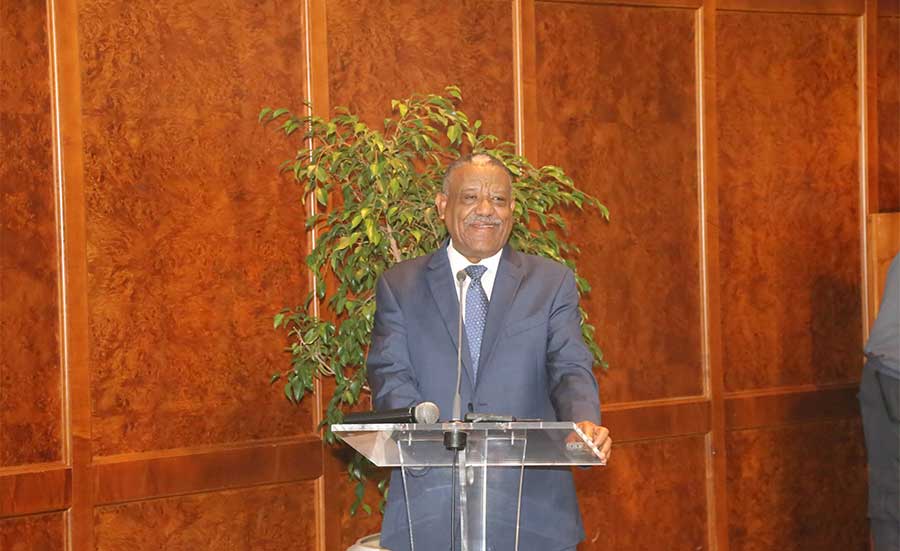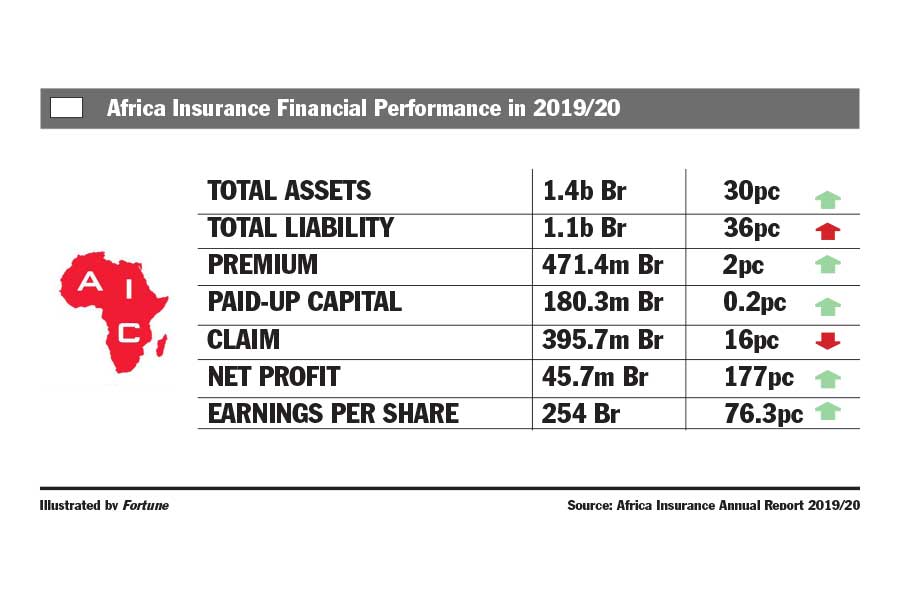
May 4 , 2025
By Kalkidan Arega
Africa appears poised for a period of robust economic expansion, supported by several developments that seem ready to converge and spark broad-based progress. Among them are efforts at regional integration, including the African Continental Free Trade Area (AfCFTA), a single market for goods and services.
With 47 of the 55 countries on the continent having ratified the agreement, many observers see it as a critical chance to deepen ties in trade and manufacturing. If Africa fully capitalises on the opportunity, it might see the emergence of cross-border production hubs and smoother intra-African trade. Another regional initiative, the Single African Air Transport Market (SAATM), has also raised hopes for a more connected continent. The Open Skies project seeks to remove restrictions on routes, capacity, pricing, and market access, potentially linking African economies more closely.
Economists expect these initiatives to feed into a strengthening pattern of growth. The African Development Bank (AfDB) Group forecasts that the continent’s growth would reach 3.7pc last year, then climb to 4.3pc this year. That uptick is set against a backdrop of historically modest levels of productivity. Africa hosts roughly 18pc of the global population — close to 1.4 billion people — but commands less than three percent of global air traffic, a key indicator of economic energy.
Africa’s population is projected to surge toward 2.5 billion this year, a major demographic shift that some see as an opportunity as well as a burden.
Analysts say Africa may finally unlock more of its considerable potential if these initiatives on trade, air connectivity, and other areas succeed. But, they also caution that longstanding problems can undermine growth targets. One recurring issue is Africa’s struggle to achieve identity security on a widespread level. The challenge is familiar to organisations such as TOPPAN Security, a global leader in identity security.
TOPPAN is currently taking part in a high-profile project in Ethiopia, where the company and its partners are investing 55 million dollars to build an e-passport production facility in Addis Abeba.
TOPPAN Security Ethiopia is a joint venture between TOPPAN Security, the Ethiopian Investment Holdings, Berhanena Selam Printing Enterprise, and Material Production & Distribution Enterprise. The TOPPAN Group holds a 51pc stake in the company. Project leaders say it brings together technology and expertise to enhance the security and efficiency of Ethiopia’s public services, particularly in immigration and travel documentation.
Once it hits full capacity, the facility is designed to issue more than five million passports and other identity materials.
The new e-passport incorporates biometric tools, advanced encryption, and tamper-proof materials, and it is supported by upgraded passport issuance systems that promise faster processing for Ethiopian citizens.
A nationwide awareness campaign, led by Immigration & Citizenship Services (ICS), will help the public adjust to the rollout. In the words of those behind the initiative, Ethiopia is modernising its immigration infrastructure while boosting national security and making travel smoother. One executive involved in the project describes the e-passport as “the result of knowledge transfer, cutting-edge innovations, and a shared vision for a more secure and seamless travel experience.”
Such measures are part of a broader push to enhance identity security throughout Africa. A pan-African collective called ID4Africa has taken the lead, holding annual gatherings since 2014, building strategic capacity for robust identity systems. These systems are key to unlocking socioeconomic progress and humanitarian goals. ID4Africa is scheduled to host its annual general meeting in Addis Abeba next month.
Organisers point to mounting threats that make identity security essential, including cybercrime and the risks involved in moving government functions online. By promoting digital identity management, strong legal frameworks, and data protection, ID4Africa hopes to help governments roll out innovative yet secure solutions.
A lack of legal identity can render millions of people unable to prove who they are or their legal status. Such vulnerability can keep them from accessing everything from financial services to healthcare. In extreme cases, it deepens marginalisation and deprives entire communities of job opportunities and justice. Global statistics show that of all children under five who do not possess a birth certificate, more than half are in Africa.
Addressing this gap is a challenge, and some African governments have begun responding with a new sense of urgency.
Ethiopia’s e-passport push is one example of how digitisation might address these structural issues. Another is the partnership in South Africa among the Department of Home Affairs, the Border Management Authority, the Government Printing Works, and the South African Revenue Service. It is weaving Home Affairs services into banking platforms, allowing Smart ID and passport services to expand into hundreds of bank branches, as well as onto banking apps.
The plan also calls for upgrading the country's border control systems and rolling out Smart IDs for naturalised citizens and permanent residents. Officials say these efforts say a lot on the growing importance governments place on identifying people securely and efficiently.
It is not lost on many that the United Nations names the right to an identity as part of its 17 Sustainable Development Goals (SDGs). Establishing reliable and accessible identification is indispensable to improving education, healthcare, and financial inclusion. The link between identity documents and personal well-being is often direct in Africa. Without valid papers, people can be excluded from formal employment or denied access to bank accounts.
If AfCFTA unifies the continent’s markets, forging stronger digital identity systems will be as important in uniting Africa’s population and ensuring that the benefits of growth and reform are shared.
While the future remains unwritten, the momentum behind projects like the Ethiopian e-passport and pan-African gatherings like ID4Africa show that governments, investors, and citizens are increasingly aware of the value of secure identification. As more countries embrace modernisation, Africa’s tremendous supply of human capital and natural resources may yield gains on a scale not seen before.
The continent’s leaders often speak of a time when Africans can enjoy seamless travel across borders and frictionless commerce in a single market, furthering the possibility of a more prosperous era. But, whether such a vision becomes reality depends not only on trade agreements and open skies but also on technology-driven solutions that can bring each citizen into the fold. The spread of digital identity may be one of the most telling markers of genuine progress.
PUBLISHED ON
May 04,2025 [ VOL
26 , NO
1305]


Radar | Apr 30,2021

Fortune News | Feb 08,2020

Fortune News | Feb 16,2019

Commentaries | Aug 14,2021

Fortune News | Dec 12,2020

Radar | Sep 18,2022

Exclusive Interviews | Jan 22,2022

News Analysis | Jun 01,2024

Exclusive Interviews | Feb 12,2022

Viewpoints | Aug 17,2019

My Opinion | 132151 Views | Aug 14,2021

My Opinion | 128561 Views | Aug 21,2021

My Opinion | 126482 Views | Sep 10,2021

My Opinion | 124091 Views | Aug 07,2021





Dec 22 , 2024 . By TIZITA SHEWAFERAW
Charged with transforming colossal state-owned enterprises into modern and competitiv...

Aug 18 , 2024 . By AKSAH ITALO
Although predictable Yonas Zerihun's job in the ride-hailing service is not immune to...

Jul 28 , 2024 . By TIZITA SHEWAFERAW
Unhabitual, perhaps too many, Samuel Gebreyohannes, 38, used to occasionally enjoy a couple of beers at breakfast. However, he recently swit...

Jul 13 , 2024 . By AKSAH ITALO
Investors who rely on tractors, trucks, and field vehicles for commuting, transporting commodities, and f...

Jul 12 , 2025
Political leaders and their policy advisors often promise great leaps forward, yet th...

Jul 5 , 2025
Six years ago, Ethiopia was the darling of international liberal commentators. A year...

Jun 28 , 2025
Meseret Damtie, the assertive auditor general, has never been shy about naming names...

Jun 21 , 2025
A well-worn adage says, “Budget is not destiny, but it is direction.” Examining t...

Jul 13 , 2025 . By YITBAREK GETACHEW
The Addis Abeba City Revenue Bureau has introduced a new directive set to reshape how...

Jul 13 , 2025 . By BEZAWIT HULUAGER
Addis Abeba has approved a record 350 billion Br budget for the 2025/26 fiscal year,...

Jul 13 , 2025 . By RUTH BERHANU
The Addis Abeba Revenue Bureau has scrapped a value-added tax (VAT) on unprocessed ve...

Jul 13 , 2025 . By NAHOM AYELE
Federal lawmakers have finally brought closure to a protracted and contentious tax de...